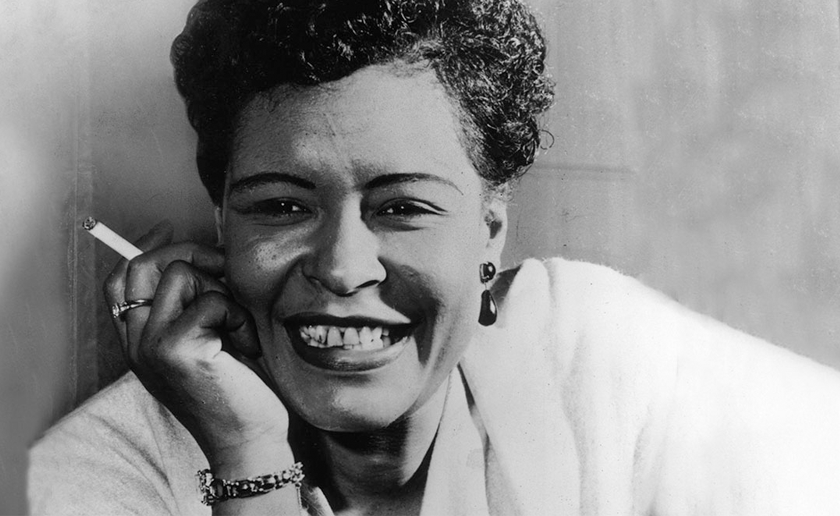“Strange Fruit”-Billie Holiday’s

Billie Holiday’s “Strange Fruit”: A Haunting Protest Against Racial Injustice
Billie Holiday’s 1939 recording of “Strange Fruit” stands as one of the most powerful and haunting protest songs in American history. Written by teacher Abel Meeropol as a poem, it was later set to music and given voice by Holiday, who made the song famous through her evocative performances. “Strange Fruit” is a stark and chilling portrayal of the lynching of African Americans in the South, using vivid and disturbing imagery to condemn the violence and racism of the era. Holiday’s interpretation of the song transformed it from a poem into a profound social statement, one that remains a vital part of American music and history.
The lyrics of “Strange Fruit” describe the lynching of Black men and women, with the titular “strange fruit” referring to the bodies hanging from trees. The opening lines of the song are chilling in their simplicity and directness:
“Southern trees bear strange fruit,
Blood on the leaves and blood at the root,
Black bodies swinging in the Southern breeze,
Strange fruit hanging from the poplar trees.”

These words paint a harrowing picture of the violence and brutality that was commonplace during the Jim Crow era. The imagery is stark and visceral, forcing the listener to confront the horrific reality of racial terror in America. By likening the victims of lynching to “strange fruit,” the song uses the natural world to highlight the unnatural cruelty of this practice, juxtaposing the beauty of nature with the grotesque horror of the lynchings.
Musically, “Strange Fruit” is minimalistic and somber, allowing the lyrics to take center stage. The slow, almost dirge-like melody underscores the gravity of the subject matter, creating a mood of sadness and solemnity. Holiday’s vocal delivery is restrained but deeply emotional, as she imbues each line with a sense of sorrow, anger, and resignation. Her voice trembles with emotion, but she never allows it to break, maintaining a controlled intensity that amplifies the song’s impact. The sparse instrumentation, typically just a piano or small jazz ensemble, provides a haunting backdrop to her vocals, creating an atmosphere of quiet devastation.

Billie Holiday’s performances of “Strange Fruit” became iconic, not only for their emotional depth but also for their courage. In the 1930s, addressing racial violence so explicitly was a dangerous act, particularly for a Black woman. Holiday often faced backlash and even threats for performing the song, yet she continued to include it in her repertoire. Her decision to perform “Strange Fruit” was a form of resistance, an act of defiance against the racist systems that sought to silence voices like hers. Holiday’s bravery in bringing this song to the public was a significant moment in the history of American protest music, marking one of the first times that a mainstream artist used their platform to speak out against racial injustice.

“Strange Fruit” also had a significant cultural and political impact. It exposed a wider audience to the horrors of lynching and forced many listeners to confront the brutal reality of racial violence. The song became a rallying cry for the burgeoning civil rights movement, and its influence can be seen in the protest songs and activism that followed in the decades to come. Although it was written in the 1930s, the song’s message remains relevant today, as issues of racial violence and injustice continue to persist in modern society.
At the time of its release, “Strange Fruit” was considered highly controversial. Many radio stations refused to play it, and some venues where Holiday performed were reluctant to allow her to sing it. However, the song’s emotional power and its stark portrayal of racial violence made it impossible to ignore. Despite—or perhaps because of—this controversy, “Strange Fruit” became one of Holiday’s signature songs, and it solidified her reputation not only as a gifted vocalist but also as a courageous artist willing to speak truth to power.

Billie Holiday’s rendition of “Strange Fruit” endures as one of the most important recordings in American music history. It stands as a powerful reminder of the atrocities of the past and serves as a testament to the role that music can play in social activism. Through her haunting interpretation of the song, Holiday gave voice to the pain and suffering of countless African Americans who were subjected to the terror of lynching. Her performance transformed a simple poem into a rallying cry for justice, one that continues to resonate with audiences today.
In conclusion, Billie Holiday’s “Strange Fruit” is much more than a song; it is a profound statement against racial injustice and a call to remember the lives lost to racial violence. Holiday’s emotional delivery and the song’s chilling lyrics combine to create a powerful piece of art that transcends its time, continuing to inspire and challenge listeners to confront the darker chapters of American history.











